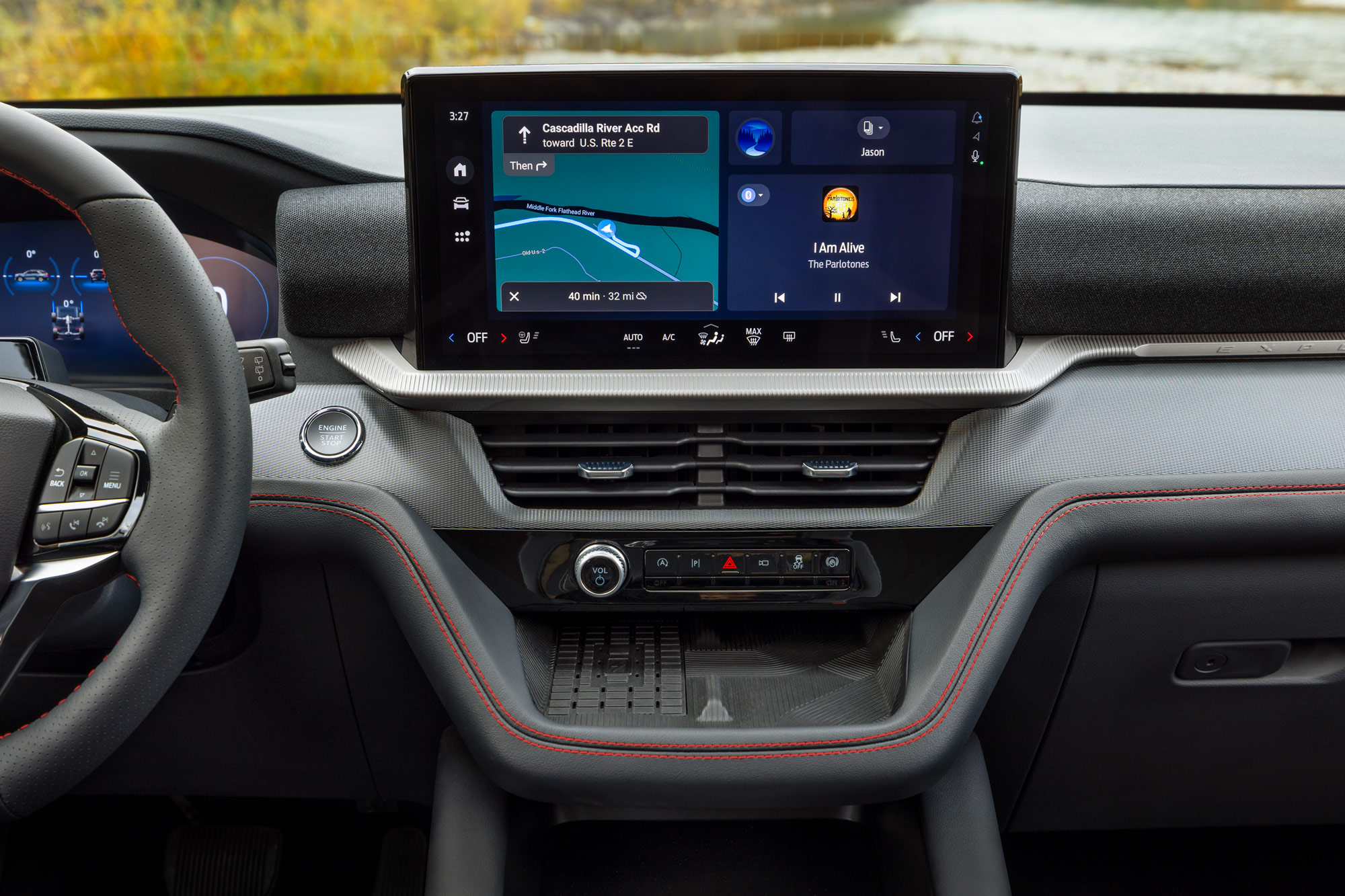
The 2025 Ford Explorer: Fuel Tank Capacity and Efficiency in Focus
The Ford Explorer, a stalwart in the mid-size SUV segment, has consistently offered a blend of practicality, comfort, and capability. With the upcoming 2025 model year, Ford is poised to refine these attributes further, potentially including adjustments to the fuel tank capacity and overall fuel efficiency. While official details are still under wraps, we can delve into the current trends, anticipated changes, and the impact on the Explorer’s driving experience.
Fuel Tank Capacity: A Balancing Act
The 2024 Ford Explorer offers two fuel tank options: a standard 18.8-gallon tank and an optional 21.1-gallon tank. This variability reflects the diverse needs of Explorer drivers, with the larger tank catering to those seeking extended range for long road trips or frequent highway driving.
However, the 2025 model might see a slight shift in this approach. While Ford hasn’t officially announced any changes, the industry’s focus on fuel efficiency and reducing emissions could lead to a smaller standard tank size. This would align with the trend of manufacturers optimizing vehicles for better fuel economy, potentially prioritizing a lower overall weight to improve performance and reduce emissions.
Anticipated Fuel Efficiency Enhancements
The 2025 Explorer is expected to build upon the existing fuel-efficient powertrain options, potentially incorporating further advancements in engine technology and hybrid systems. Here are some key areas where improvements could be seen:
- Engine Optimization: Refinements to the existing engine lineup, including the 2.3L EcoBoost and the 3.0L EcoBoost V6, could lead to improved combustion efficiency and reduced fuel consumption.
- Hybrid Powertrain: The availability of a hybrid powertrain option in the 2025 Explorer could significantly boost fuel efficiency. This system would combine a gasoline engine with an electric motor, allowing for regenerative braking and reduced reliance on fuel.
- Aerodynamic Enhancements: Subtle aerodynamic tweaks to the Explorer’s design, such as optimized front grilles and wind deflectors, could reduce air resistance and improve fuel economy.
- Weight Reduction: Utilizing lighter materials for certain components, such as aluminum or carbon fiber, could contribute to a lower overall vehicle weight, further enhancing fuel efficiency.
Impact on Driving Range and Practicality
While a potential decrease in standard fuel tank capacity might raise concerns about driving range, the anticipated fuel efficiency improvements could offset this reduction. The 2025 Explorer could achieve a higher miles-per-gallon rating, ultimately extending its overall range even with a smaller tank.
However, the impact on practicality for long-distance drivers remains to be seen. The availability of the larger tank option could be crucial for those who regularly undertake extended journeys. Ford will likely need to balance the need for improved fuel efficiency with the demands of drivers seeking maximum range.
Alternative Fuel Options: A Future Possibility
Looking beyond the 2025 model year, the future of the Ford Explorer could encompass alternative fuel options. The automotive industry is increasingly exploring electric vehicles (EVs) and hydrogen fuel cell technology. While these technologies are still in their early stages of development, their integration into the Explorer lineup could revolutionize fuel consumption and emissions.
- Electric Explorer: A fully electric Explorer could offer zero-emission driving and potentially boast impressive range capabilities. However, the infrastructure for widespread EV adoption remains a significant hurdle.
- Hydrogen Fuel Cell Explorer: Hydrogen fuel cell technology offers a promising solution for long-range driving with zero tailpipe emissions. However, the availability and cost of hydrogen refueling stations are currently limited.
Conclusion: Adapting to a Changing Landscape
The 2025 Ford Explorer is poised to enter a landscape increasingly shaped by fuel efficiency and sustainability. While the precise fuel tank capacity and overall fuel efficiency remain to be confirmed, it’s clear that Ford is committed to optimizing the Explorer for a more environmentally conscious future.
Whether the standard fuel tank size shrinks or remains unchanged, the anticipated advancements in engine technology, hybrid powertrains, and aerodynamic enhancements are likely to improve fuel economy and extend driving range. As the automotive industry navigates the transition towards alternative fuel options, the Explorer’s future could hold exciting possibilities for zero-emission driving.
Further Considerations:
- Driving Habits and Fuel Economy: Individual driving habits, such as aggressive acceleration and frequent highway driving, can significantly impact fuel consumption.
- Tire Pressure and Maintenance: Maintaining proper tire pressure and regular vehicle maintenance can contribute to optimal fuel efficiency.
- Technology Advancements: Continuous advancements in battery technology and fuel cell development could lead to further improvements in fuel efficiency and driving range in future models.
By staying informed about the evolving landscape of fuel efficiency and alternative fuel options, Explorer owners can make informed decisions about their driving habits and vehicle choices. As the 2025 Ford Explorer emerges, its fuel tank capacity and overall efficiency will be key factors in determining its appeal to a discerning audience.
/https://www.forbes.com/wheels/wp-content/uploads/2022/05/FordExplorerEVMain.png)



![2025 Ford Explorer: Release Date, Pricing and Specs [Update] - EVsBuzz.com](http://evsbuzz.com/wp-content/uploads/2023/08/2023Ford_TheNewAll-ElectricFordExplorer_Norway_12-1024x768.webp)



